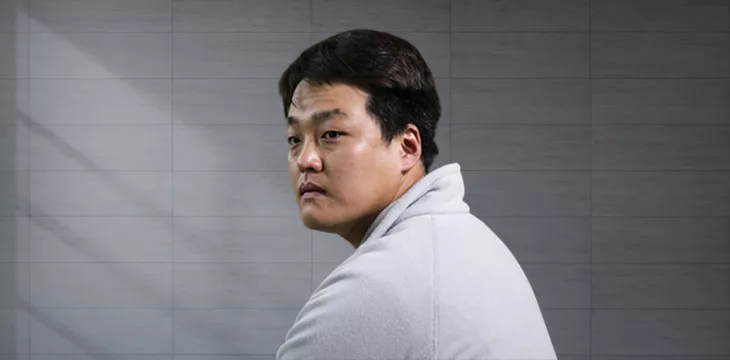|
Getting your Trinity Audio player ready...
|
Terraform Labs and its co-founder, Do Kwon, filed a summary judgment motion requesting that the court throw out the U.S. Securities and Exchange Commission (SEC) case against them, claiming the regulator has failed to prove that the company or its founder did anything wrong.
In an October 27 filing with the U.S. District Court for the Southern District of New York, Do Kwon and the now-defunct digital asset company he co-founded, Terraform Labs, requested that Judge Jed Rakoff throw out the SEC case against them “as a matter of law.”
“After two years of investigation, the completion of a discovery period that resulted in the taking of more than 20 depositions, and the exchange of over two million pages of documents and data, the SEC is evidentiarily no closer to proving that the Defendants did anything wrong,” the lawyers wrote.
“Evidence does not exist to support many of the SEC’s claims,” continued the filing.
Terraform Labs collapsed in May 2022 when its TerraUSD (UST) algorithmic stablecoin lost its peg to the U.S. dollar after it was revealed that the company’s native token Luna was, in fact, propping it up.
In its lawsuit against Kwon and Terraform, filed in February this year, the SEC accused the company and its founder of violating securities laws and orchestrating a “fraudulent scheme.”
“From at least April 2018 through May 2022…Terraform and Kwon offered and sold crypto asset securities in unregistered transactions and perpetrated a fraudulent scheme that led to the loss of at least $40 billion of market value, including devastating losses for U.S. retail and institutional investors,” said the SEC.
The regulator also accused the defendants of sending 10,000 BTC to a Swiss financial institution and withdrawing $100 million of customer funds, an accusation the company refuted in its latest motion.
“The SEC knew this allegation was false when it filed this case,” argued lawyers for Terraform and Kwon. “This is made even worse by the undisputed fact that Terraform Labs had no customers, and thus no customer funds.”
The company also attempted to throw doubt on the reliability of SEC’s witnesses, stating that “the SEC’s proposed experts have proffered opinions that utterly lack relevance, rigor, or reliability (and in some cases are not even opinions at all).”
An example given was a report from Rutgers University economics professor Bruce Mizrach, which the filing called “junk science.”
These latest arguments come only a few short months after Judge Rakoff denied a previous attempt by Terraform and Kwon to have the lawsuit dismissed.
The pair hoped to have the SEC’s case thrown out based on a July ruling in the Ripple Labs case, in which the court found that XRP sold on exchanges via programmatic sales were not securities because the buyer could not know whether their money went to Ripple or any other third party. Due to this, the court ruled that the sales did not meet one of the main criteria of the Howey test—the expectation of profits derived from the efforts of others.
This, claimed Terraform, meant that the digital assets Terra Classic (LUNC), TerraClassicUSD (USTC), Mirror Protocol (MIR), and its mirrored assets (mAssets) are also not securities—and thus, they cannot be accused of unregistered securities offerings.
However, Judge Rakoff rejected the court’s reasoning in the Ripple case as being inconsistent with the Howey test and suggesting that secondary sales can amount to illegal securities transactions.
“Howey makes no such distinction between purchasers,” said Rakoff, when rejecting Terraform and Kwon’s previous motion to dismiss.
In the defendants’ latest request for summary judgment, on top of the new claims about lack of evidence and false allegations, they reiterated the arguments related to the Ripple and the SEC jurisdictional overreach, stating, “Congress has not provided clear authority to the SEC to regulate and assert enforcement jurisdiction over the digital assets at issue here, including the stablecoin UST.”
Kwon is currently detained in Montenegro and previously asked the court to reject the SEC’s motion to extradite and interview him in the United States. The defendants’ legal team told the court that Kwon cannot comply with the request to depose him because he is currently in detention with “no scheduled release or extradition date.”
Watch Callahan, MaGruder, Lee, and Reinhardt: Probing criminal acts

 07-18-2025
07-18-2025 





